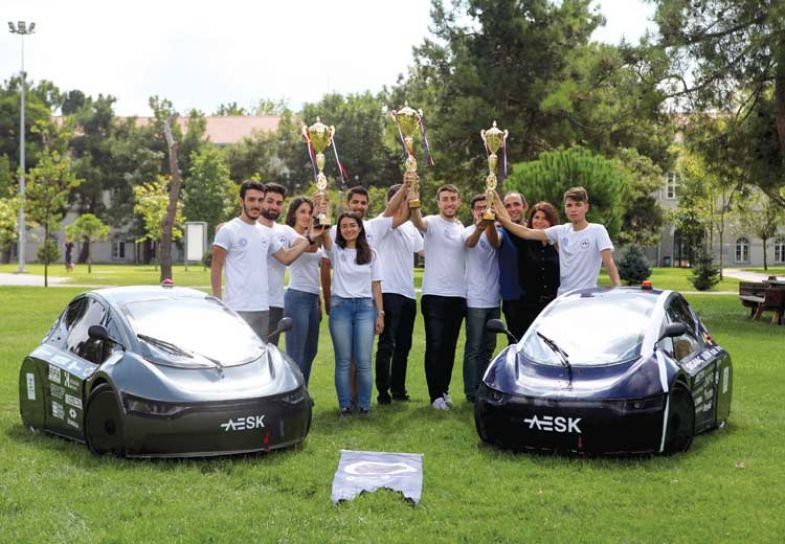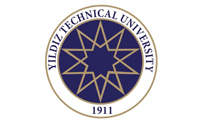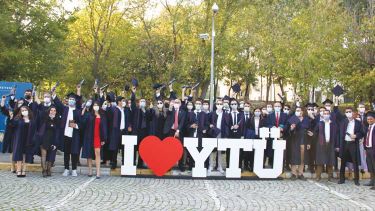
Yildiz Technical University’s environmental push inspires students to develop their own sustainable innovations
Yildiz Technical University’s (YTU) Green Campus is a “living laboratory” for developing and refining sustainable solutions, says Tamer Yılmaz, rector of the university. “It becomes an inspiration and a model for the surrounding community and to other institutions,” he says. “Students and staff are healthier and more productive on campuses that are good for the environment.”
YTU, one of the oldest educational institutions in the Turkish city of Istanbul, is marshalling staff and students to realise its YTU Green Campus project, which aims to promote sustainability on its grounds and to inspire others to do the same. This focus on sustainability reflects the institution’s dedication to the UN’s Sustainable Development Goals, which recognise the importance of quality education, innovation and making cities sustainable, Professor Yılmaz says.
The Green Campus project focuses on introducing self-sufficient energy systems, improved waste management and water harvesting, as well as measures to improve mobility and reduce carbon emissions. “We are determined to blend sustainability into our daily institutional operations, including education and research,” Professor Yılmaz says.
The university has implemented many initiatives to reduce its environmental footprint, Professor Yılmaz explains. It monitors power consumption across its campuses and relies on LED lights and natural lighting to reduce its energy use. In 2022, YTU will launch a solar panel project at its Davutpaşa campus, which will meet a significant proportion of its electricity needs.
To reduce the threat of flash flooding and damage from extreme weather events, YTU has also adapted 24 hectares of green space on its campuses, introducing drought-tolerant plants and improving soil drainage. Rainwater is collected in harvesting tanks and distributed to the university’s green spaces by a system of smart sensors. YTU is also working to increase its pedestrian and bicycle infrastructure so that staff and students do not have to use cars and can reduce their carbon emissions.
While these interventions improve YTU’s environmental footprint today, its students’ actions will be felt for many years to come. “We support our students in every sense to help their contributions to sustainability, especially through their student clubs,” Professor Yılmaz says.
There are numerous student clubs that focus on environmental issues. The Alternative Energy Systems Club, for example, has found success by using alternative energy systems to make efficient vehicles. Club members have developed a solar-powered electric vehicle and are now working on autonomous vehicles. Meanwhile, the YTU Solar Boat Team designs and builds boats powered by sustainable energy.
The university’s management and academics are also investigating solutions to improve the sustainability of transport. In partnership with engineering and technology company Bosch, YTU offers the Bosch Electrified Mobility Training Programme. This free programme, open to undergraduate and postgraduate students, aims to equip “future engineers with the know-how on electric vehicles and relevant information and knowledge for career planning in the field of electric vehicles”, Professor Yılmaz says. Additionally, the university founded its Mobility Lab in cooperation with the Turkish Ministry of Transport and Infrastructure to research and develop novel mobility systems based on safe, environmentally friendly and efficient transport.
Ultimately, YTU’s Green Campus programme is part of the university’s push to be more sustainable and to embed this approach in the education it provides its students. “One of the main goals…is to raise environmental awareness for all stakeholders…Students are becoming increasingly aware of the issues the Earth faces with carbon emissions and increased consumption, and they will be more proactive in protecting the environment in their daily activities,” Professor Yılmaz says.
Find out more about YTU.

